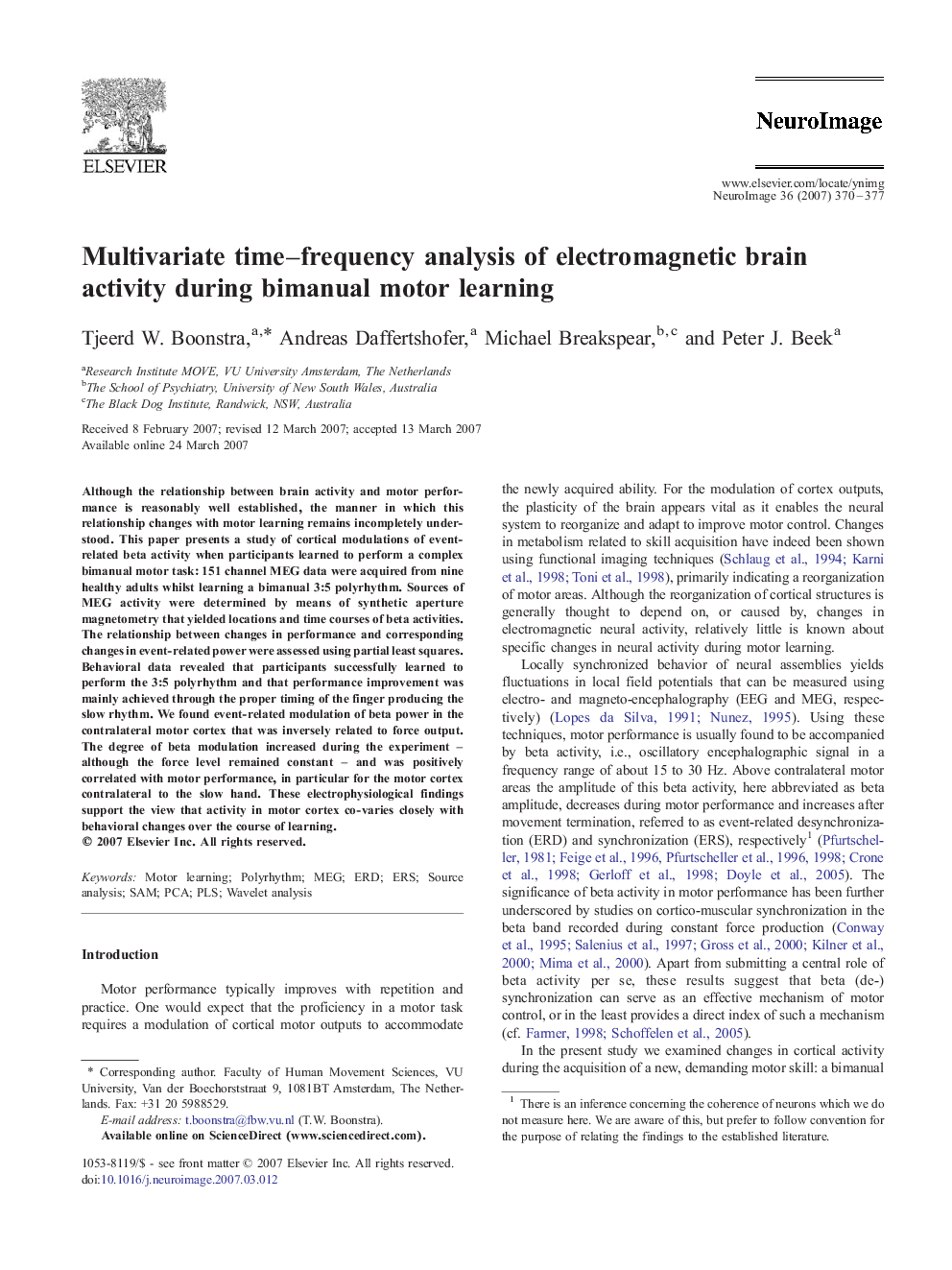| Article ID | Journal | Published Year | Pages | File Type |
|---|---|---|---|---|
| 6039938 | NeuroImage | 2007 | 8 Pages |
Abstract
Although the relationship between brain activity and motor performance is reasonably well established, the manner in which this relationship changes with motor learning remains incompletely understood. This paper presents a study of cortical modulations of event-related beta activity when participants learned to perform a complex bimanual motor task: 151 channel MEG data were acquired from nine healthy adults whilst learning a bimanual 3:5 polyrhythm. Sources of MEG activity were determined by means of synthetic aperture magnetometry that yielded locations and time courses of beta activities. The relationship between changes in performance and corresponding changes in event-related power were assessed using partial least squares. Behavioral data revealed that participants successfully learned to perform the 3:5 polyrhythm and that performance improvement was mainly achieved through the proper timing of the finger producing the slow rhythm. We found event-related modulation of beta power in the contralateral motor cortex that was inversely related to force output. The degree of beta modulation increased during the experiment - although the force level remained constant - and was positively correlated with motor performance, in particular for the motor cortex contralateral to the slow hand. These electrophysiological findings support the view that activity in motor cortex co-varies closely with behavioral changes over the course of learning.
Related Topics
Life Sciences
Neuroscience
Cognitive Neuroscience
Authors
Tjeerd W. Boonstra, Andreas Daffertshofer, Michael Breakspear, Peter J. Beek,
